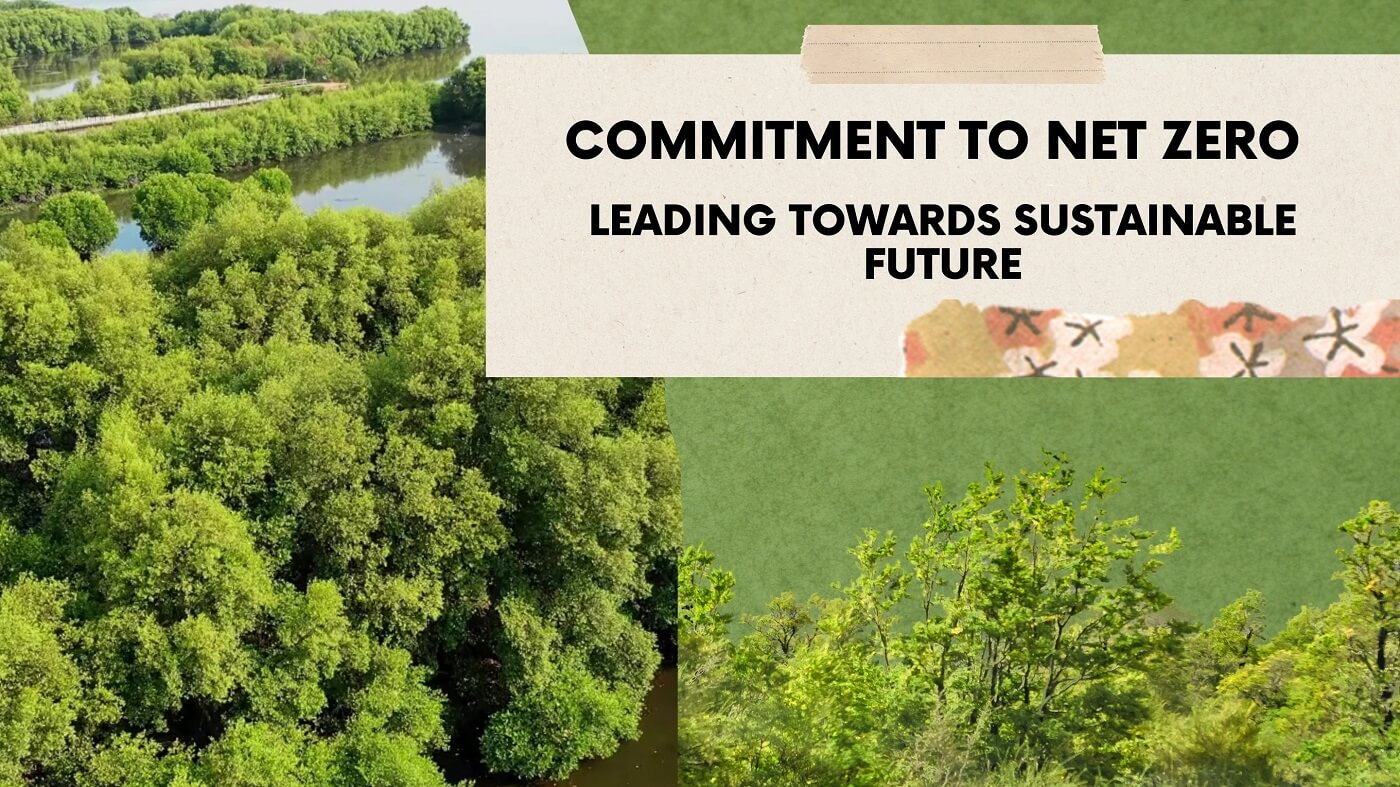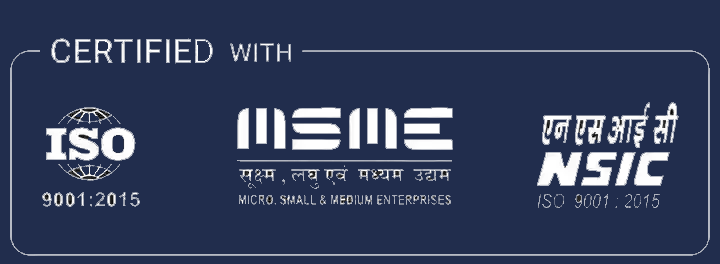Commitment to Net Zero: Leading Towards a Sustainable Future
 Ankit Agarwal Wednesday, May 29, 2024
Ankit Agarwal Wednesday, May 29, 2024

At Dean Infotech, we believe that our role as a leading tech company comes with a profound responsibility to contribute positively to the global fight against climate change. As the world grapples with the urgent need to reduce greenhouse gas emissions, we are steadfast in our commitment to achieving net zero emissions. Our approach is holistic, encompassing every aspect of our operations—from the energy we use in our data centers to the sustainability of our supply chain and the efficiency of our products and services.
We understand that the journey to net zero requires more than just internal changes; it demands innovation, collaboration, and transparency. That’s why we are investing heavily in renewable energy, optimizing our technological solutions for greater energy efficiency, and engaging in robust carbon offset initiatives. Our dedication is also reflected in our transparency practices, as we regularly disclose our emissions data and progress towards our sustainability goals.
By setting clear and ambitious targets, partnering with stakeholders, and advocating for sustainable practices industry-wide, we aim to lead by example. At Dean Infotech, our net zero commitment is more than a corporate objective—it is a testament to our dedication to creating a sustainable future for our planet and for generations to come.
Defining Net Zero for a Tech Company?
Net zero for a tech company refers to achieving a balance between the greenhouse gases emitted by its operations and those removed from the atmosphere or offset through various means. This involves minimizing emissions across all aspects of its business, including energy consumption, manufacturing processes, and transportation.
To reach net zero, tech companies typically adopt a multi-faceted approach. This may include investing in renewable energy sources like solar or wind power for their data centers and offices, optimizing software and hardware to be more energy-efficient, implementing sustainable supply chain practices, and promoting remote work to reduce employee commuting. Additionally, companies may engage in carbon offsetting initiatives such as reforestation projects or investing in carbon capture technologies.
Furthermore, transparency and accountability are crucial aspects of achieving net zero. Tech companies often track and disclose their emissions data, set clear targets for reducing emissions, and regularly report progress towards those goals. Collaboration with suppliers, customers, and other stakeholders is also essential to drive systemic change and accelerate the transition to a low-carbon economy. By embracing innovation and sustainability, tech companies can play a significant role in combating climate change and creating a more resilient future.
Why Net Zero?
Achieving net zero is critical for addressing climate change and ensuring a sustainable future for generations to come. Here's why it's so important:
1. Climate Crisis Mitigation: Net zero is essential in limiting global temperature rise to well below 2 degrees Celsius above pre-industrial levels, as outlined in the Paris Agreement. By reducing greenhouse gas emissions to net zero, we can minimize the impacts of climate change such as extreme weather events, sea level rise, and biodiversity loss.
2. Environmental Preservation: Net zero helps protect ecosystems and biodiversity by reducing pollution and mitigating habitat destruction associated with extractive industries and land-use changes. Preserving ecosystems is crucial for maintaining the balance of natural processes and supporting life on Earth.
3. Public Health Benefits: Transitioning to net zero emissions can lead to cleaner air and water, improving public health outcomes by reducing respiratory illnesses, cardiovascular diseases, and other health issues linked to pollution. It also helps alleviate environmental injustices disproportionately affecting marginalized communities.
4. Economic Opportunities: Embracing renewable energy and sustainable practices creates economic opportunities by fostering innovation, job creation, and investment in clean technologies. Transitioning to a net zero economy can drive economic growth while reducing dependency on finite fossil fuel resources.
5. Global Leadership and Collaboration: Leading the transition to net zero emissions allows countries and companies to demonstrate leadership on the world stage, inspiring others to follow suit. International collaboration and partnerships are essential for sharing knowledge, resources, and technologies to accelerate the global transition to a sustainable future.
5 Top ways of attaining net zero public commitment as tech company
Here are five top ways for a tech company to publicly commit to attaining net zero emissions:
1. Setting Clear Targets: The company should publicly declare specific, measurable, and time-bound targets for achieving net zero emissions. These targets should cover all aspects of the business, including operations, supply chain, and products/services. Transparency in goal-setting demonstrates the company's commitment to accountability.
2. Investing in Renewable Energy: The company can publicly commit to sourcing 100% of its electricity from renewable sources such as solar, wind, or hydroelectric power. This not only reduces emissions but also supports the growth of the renewable energy sector.
3. Carbon Offsetting and Removal: Publicly announce initiatives to offset or remove carbon emissions beyond what can be reduced internally. This could involve investing in projects such as reforestation, afforestation, carbon capture and storage (CCS), or direct air capture (DAC). Communicating these efforts demonstrates a holistic approach to carbon neutrality.
4. Product Innovation and Sustainability: Commit to developing and promoting sustainable products and services that help customers reduce their own carbon footprint. This could include energy-efficient technologies, carbon footprint tracking tools, or sustainable alternatives to traditional products.
5. Collaboration and Advocacy: Publicly engage in partnerships, industry collaborations, and advocacy efforts to accelerate the transition to a net zero economy. This could involve joining industry coalitions, supporting climate policy initiatives, or sharing best practices with peers. Publicly communicating these collaborative efforts amplifies their impact and demonstrates a commitment to collective action.
By publicly committing to these strategies, a tech company can demonstrate its dedication to achieving net zero emissions while inspiring others to take similar actions towards a more sustainable future.
5 Challenges for net zero emissions control
Achieving net zero emissions presents several challenges for tech companies. Here are five key challenges:
1. Supply Chain Complexity: Tech companies often have complex, global supply chains involving numerous suppliers and manufacturing processes. Ensuring that all parts of the supply chain adopt sustainable practices and reduce emissions can be difficult, as it requires extensive coordination, monitoring, and sometimes altering long-established relationships.
2. Energy Consumption: Data centers, which are integral to tech companies, consume vast amounts of energy. Transitioning these facilities to run entirely on renewable energy can be challenging due to the scale of their energy requirements, availability of renewable energy sources, and the need for consistent, reliable power to prevent disruptions.
3. Technological Limitations: While technology can aid in reducing emissions, some necessary advancements in energy efficiency, carbon capture, and storage technologies are still in developmental stages. Relying on emerging technologies to meet net zero goals can be risky and may not deliver the needed reductions within desired timelines.
4. Financial Investment: Significant financial resources are required to transition to net zero. This includes investing in renewable energy, upgrading infrastructure, and developing sustainable products. Smaller tech companies or startups may find it particularly challenging to allocate sufficient funds for these purposes without compromising other critical business areas.
5. Regulatory and Policy Uncertainty: The regulatory landscape for emissions and sustainability is constantly evolving. Uncertainty in regulations and policies can make long-term planning difficult for tech companies. Additionally, differing regulations across countries can complicate efforts for multinational companies aiming for a unified approach to net zero.
Overcoming these challenges requires a strategic, multi-faceted approach involving technological innovation, robust financial planning, stakeholder engagement, and proactive adaptation to regulatory changes.
Conclusion
At Dean Infotech, we recognize the imperative role that tech companies play in addressing the global climate crisis. As a responsible and forward-thinking organization, we are committed to achieving net zero emissions and fostering a sustainable future. Our dedication to this cause is reflected in the comprehensive steps we are taking to minimize our environmental impact and promote sustainability across all facets of our operations.
We have set clear and ambitious targets to reduce our greenhouse gas emissions, not just within our own facilities but throughout our entire supply chain. By investing in renewable energy sources, we are ensuring that our data centers and offices are powered by clean energy, significantly reducing our carbon footprint. Our commitment extends to optimizing our software and hardware solutions to be more energy-efficient, thereby helping our clients and partners reduce their own environmental impact.
Moreover, we actively engage in carbon offsetting initiatives, investing in projects that capture or eliminate emissions equivalent to those we produce. These initiatives include reforestation efforts, support for renewable energy projects, and contributions to innovative carbon capture technologies. Our goal is not only to neutralize our emissions but also to contribute positively to the environment.
Transparency and accountability are cornerstones of our sustainability strategy. We regularly track, disclose, and report our emissions data, setting benchmarks and monitoring our progress towards achieving net zero. This transparency ensures that our stakeholders can hold us accountable and witness our ongoing commitment to environmental stewardship.
Collaboration is key to our approach. We work closely with our suppliers, partners, and industry peers to share best practices and drive systemic change. By advocating for sustainable policies and participating in global climate initiatives, we aim to inspire and lead the tech industry towards a greener future.
At Dean Infotech, our commitment to net zero is not just a goal but a responsibility we embrace wholeheartedly. We are dedicated to creating a more sustainable, resilient world and invite our stakeholders to join us in this vital journey. Together, we can make a significant impact and ensure a healthier planet for future generations.






Comment